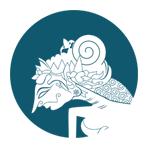Ethnomathematics Study of Islands Indigenous Peoples in Maluku Province, Indonesia
 Country:
Country:
(1) Universitas Pattimura, Indonesia
(2) Universitas Pattimura, Indonesia
(3) Universitas Pattimura, Indonesia
Ethnomathematics study of islands indigenous peoples in Maluku Province, Indonesia. Objectives: The aim of this study was implementation of a mathematics study in learning related to island communities’ context in Maluku. Methods: This study used methods of exploration, documentation and literature study. Findings: Many local communities in the Maluku did not realize that all selling activities, handicraft, or woven are included in mathematics in the form of fractions or geometry. Conclusion: This study concluded that the activities of selling, weaving and crafting in the community display fraction and geometry patterns
Keywords:Ethnomatematics, island indigenous peoples, fractions, geometry.
DOI: http://dx.doi.org/10.23960/jpp.v9.i1.201914
Abas, S. J. (2001). Islamic geometrical patterns for the teaching of mathematics of symmetry. Symmetry: Culture and Science, 12(1–2), 53–65.
Albanese, V., Santillán, A., & Oliveras, M. L. (2014). Ethnomathematics and teachers training: The Argentinian context. Revista Latinoamericana de Etnomatemática, 7(1), 198–220.
Avruch, K. (1998). Culture and conflict resolution. Washington, DC: United States Institute of Peace Press. Retrieved from https://books.google.co.id/books?id=OofmUheyGJAC&pg=PA39
D’Ambrosio, U. (1985). Ethnomathematics and its place in the history and pedagogy of mathematics. For the Learning of Mathematics, 5(1), 44–48.
D’Ambrosio, U. (2016). An overview of the history of ethnomathematics. In M. Rosa et al. (Eds.), Current and future perspectives of ethnomathematics as a program (pp. 5–11). Springer.
D’Ambrosio, U. (2016). Ethnomathematics: Link between traditions and modernity. Rotterdam/Taipei: Sense Publishers.
Embong, R., Maizan, N., Aziz, A., & Abd, Z. (2010). An insight into the mathematical thinking of the Malay songket weavers. Procedia - Social and Behavioral Sciences, 8, 713–720.
Ezeife, A. N. (2012). A cultural and environmental spin to mathematics education: Research implementation experience in a Canadian Aboriginal community. First Nations Perspectives, 4(1), 2–39.
Fouze, A. Q., & Amit, M. (2018). On the importance of an ethnomathematical curriculum in mathematics education. EURASIA Journal of Mathematics, Science and Technology Education, 14(2), 561–567.
Gerdes, P. (2011). African basketry: Interweaving art and mathematics in Mozambique. In Bridges Coimbra: Mathematics, Music, Art, Architecture, Culture (pp. 9–16).
Gerdes, P., & Mozambique, M. (2011). African basketry: Interweaving art and mathematics in Mozambique. Bridges: Mathematics, Music, Art, Architecture, Culture, 9–16.
Hardy, G. H. (1940). A mathematician’s apology. Edmonton, Canada: University of Alberta Mathematical Sciences Society.
Horsthemke, K., & Schäfer, M. (2007). Does ‘African mathematics’ facilitate access to mathematics? Towards an ongoing critical analysis of ethnomathematics in a South African context. Pythagoras, 65, 2–9.
Huang, S. L., & Waxman, H. C. (2009). The association of school environment to student teachers’ satisfaction and teaching commitment. Teaching and Teacher Education, 25(2), 235–243.
Kak, S. (2011). Guáman Poma’s yupana and Inca astronomy. Oklahoma State University.
Marchis, I. (2009). Symmetry and interculturality. Acta Didactica Napocensia, 2(1), 57–62.
Nuh, Z. M., & Dardiri. (2016). Etnomatematika dalam sistem pembilangan pada masyarakat Melayu Riau. Kutubkhanah: Jurnal Penelitian Keagamaan, 19(2), 221–238.
Owens, K. (2012). Identity and ethnomathematics projects in Papua New Guinea: An ecocultural pedagogy of mathematics. In J. Dindyal, L. P. Cheng, & S. F. Ng (Eds.), Mathematics education: Expanding horizons (pp. 586–593). Singapore: Mathematics Education Research Group of Australasia Inc.
Prediger, S. (2003). Mathematics—Cultural product or epistemic exception? In B. Löwe, V. Peckhaus, & T. Raasch (Eds.), The history of the concept of the formal sciences (pp. 217–232). Bonn.
Rachmawati, I. (2012). Eksplorasi etnomatematika masyarakat Sidoarjo. MATHUnesa, 1(1), 1–8.
Rubio, J. S. (2016). The ethnomathematics of the Kabihug Tribe in Jose Panganiban, Camarines Norte, Philippines. Malaysian Journal of Mathematical Sciences, 10, 211–231.
Sirate, S. F. S. (2011). Studi kualitatif tentang aktivitas etnomatematika dalam kehidupan masyarakat Tolaki. Lentera Pendidikan, 14(2), 123–136.
Wilder, R. L. (1950). The cultural basis of mathematics. In International Proceedings of the Congress of Mathematicians (pp. 258–271).
Yusuf, M. W., Saidu, I., & Halliru, A. (2010). Ethnomathematics (A mathematical game in Hausa culture). International Journal of Mathematical Science Education, 3(1), 36–42.
No supplementary information available.
Refbacks
- There are currently no refbacks.

This work is licensed under a Creative Commons Attribution-ShareAlike 4.0 International License.
View My Stats






